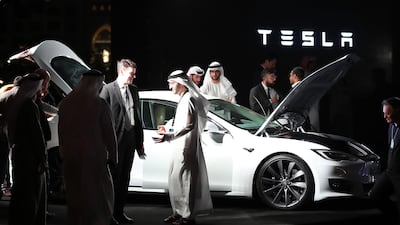The statistics have been saying the same thing for some years now – demand for electric cars is on the increase, and likely to accelerate in the next decade.
However, there is rather less information available about the future of hybrid cars, that midpoint between full-on petrol and diesel and their more sustainably-powered counterparts.
There is little doubt that demand for hybrid vehicles is also rising, but if you drill down into what is actually happening, the march towards an electric future might be a little farther off than the figures suggest.
Just last week, Toyota’s most senior research scientist issued a warning that an overly rapid transition to electric vehicles, or EVs, could result in drivers holding on to their petrol cars longer than they would have otherwise.
chief scientist, Toyota Motor Corporation
Ahead of a G7 leaders summit in Japan, Gill Pratt, the head of the manufacturer’s research institute, said in Hiroshima that subsidies and restrictions targeting combustion cars will make EVs attractive for customers who can afford them, but hybrids will remain a better fit for most consumers for some years to come.
“Battery materials and renewable charging infrastructure will eventually be plentiful,” he said. “But it will take decades for battery material mines, renewable-power generation facilities, transmission lines and seasonal energy-storage facilities to scale up.
“Eventually, resource limitations will end, but for many years we will not have enough battery material and renewable recharging resources for a battery-electric-vehicle-only solution.”
As a manufacturer, Toyota is a pioneer in the hybrid vehicle market.
The Prius might well be the most famous of its type in automotive history, and it made its name by being the vehicle Hollywood A-listers had to be seen in, despite the fact they invariably had a few more grunty, petrol-powered options in their garages.
______________________________
Top selling hybrid cars in UAE - in pictures
______________________________
This isn’t the first time Toyota has made the argument that a multifaceted approach including hybrids and other alternatives will reduce emissions faster, and the company is not alone in this belief.
Adam Withnall, chief executive of UAE car-buying comparison site Drive Ninja, is also convinced the way forward is electric, but sees hybrid options as being the best short-term solution.
On a practical level, he envisages the time when we see the number of electric cars on the road dwarfing petrol and diesel options as being some way off.
“Hybrid cars are a good stop gap,” he told The National.
“Electricity is the way to go, but the infrastructure is not there yet.”
When it comes to hybrids, there are several options available to customers looking to get a car that has a lower environmental impact than the traditional variety.
Mild hybrid vehicles contain a battery and an electric motor alongside a petrol or diesel engine, with the latter providing the primary means of propulsion.
Plug-in hybrids also have a petrol or diesel engine, but a more powerful battery allows them to travel a much greater distance on electric power alone.
Electric cars, meanwhile, rely solely on their battery pack, so there is no fossil-fuel back-up if you run out of power.
You also, of course, have vehicles that run on hydrogen, an option that seems to be gaining momentum in the public transport sector but which many see as a distinct competitor to all other sustainably powered vehicles.
Mr Withnall describes hybrids as being a “brilliant mix of both worlds”, but doesn’t see a time before the early 2030s when they will be overtaken by electric or possibly hydrogen vehicles.
It will be about a decade after that before fossil-fuel powered cars are all but a thing of the past, he said.
The future is likely to be combustion-free by then, but hybrids will be a crucial element on the path to that ultimate scenario.










